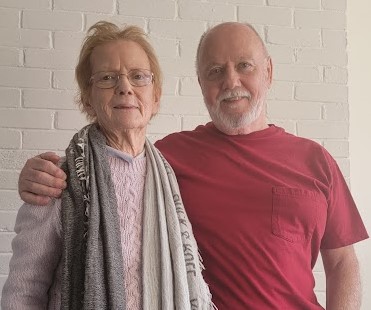The most recent publication by Greenisland Press, Rita—A Memoir, was launched during Féile an Phobail in West Belfast to an audience of almost four hundred people on 3 August in St Mary’s University College. Gerry Adams chaired the proceedings and guest speakers included Rita’s partner and husband, Brendan Brownlee, Danny Morrison (who edited the book) and former Armagh POW Síle Darragh, a personal friend of Rita, who died on 3 March, 2023, after a long battle with cancer.
Rita O’Hare came from Norfolk Drive in Andersonstown. Billy McCulloch, her father, was a Protestant from East Belfast, and her mother was a Catholic, Maureen McGinn, from Ballymacarrett. Rita was a grammar school student, married at seventeen, had three children, but in the 1960s and early 1970s, felt she could no longer ignore the oppression of the nationalist community and decided to join the IRA. In the Rosnareen area she was shot and grievously wounded by the British Army on an IRA operation, and was imprisoned three times in all. She became editor of An Phoblacht/Republican News, and then Sinn Féin’s National Director of Publicity. Rita was the party’s representative in Washington for almost twenty years, having played a prominent role in the peace process particularly as a republican contact with the Irish government.
Nelson Mandela, whom she met twice, called her his ‘little warrior’.
But the British Government was so vindictive against her that they refused to lift the charges against her, refused to let her access the ‘on the run’ scheme. Jonathan Powell, British prime minister Tony Blair’s chief of staff, in July 2000, met with Gerry Adams, Martin McGuinness and Rita O’Hare in Dublin.
He said: ‘Gerry Adams and Martin McGuinness made the case that she should come back, because she could contribute to the peace process very strongly if she came back, and her father was about to die . . .’
‘My recollection is that at the end of that meeting Gerry Adams suggested jocularly that Rita O’Hare should join us at the next meeting in Belfast. I said it would not be a good idea, as it was likely that she would be arrested.’
This posthumous and extraordinary memoir, about her life in West Belfast, her times in prison, and her life as a political exile, is also a loving tribute to her husband Brendan Brownlee and her children.



